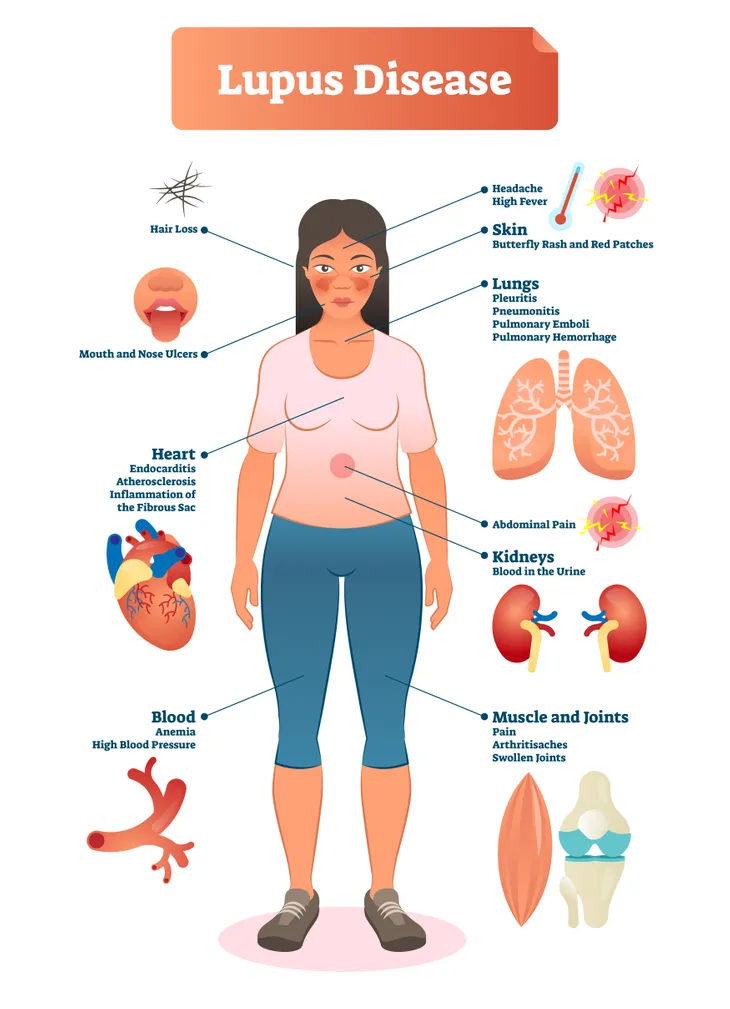I’ll never forget the day when someone asked me if they could “catch my lupus” by sharing my drink. I wasn’t offended, but I was definitely concerned because it was in that short statement I realized there is a great big world out there and a large portion of it doesn’t understand what Lupus is. With just one question, the reality sunk in. There is still so much work to do regarding awareness and education of this disease.
Having lived with Lupus for almost 20 years, I’ve come to learn that chronic illness – and everything it entails – isn’t on everyone’s radar. This is understandable. Unless it affects you, a friend or family member, why would it be? Even I can admit to not knowing the ins and outs of chronic disease before I was diagnosed. It wasn’t something that affected me daily and I had never met anyone with Lupus. But after living with multiple chronic illnesses for so long, you learn a thing or two about advocacy, in particular advocating for your needs regarding support and healthcare. It could even help others who are just starting their journey.
In addition to dealing with symptoms each day, advocation provides a fast track in education. The more you know, the more you realize there are a lot of misconceptions and myths surrounding every illness, not just Lupus. Unfortunately, Lupus has many misunderstandings and these errors can make it difficult for people like me to get proper support, medical treatment, and assistance.
And so I thought, what better time than Lupus Awareness Month to clear up some of the confusion that can often be found around the word “lupus?” As we step into May, also known as Global Lupus Awareness Month to over 5 million people living with the disease, here are 5 things I wish other people knew about lupus…
What is Lupus?
Lupus is a chronic autoimmune inflammatory disease that is sometimes referred to the “disease of 1,000 faces” because it’s so complex. With lupus, the person’s immune system essentially turns on itself and begins to attack its own tissues and organs. It commonly affects the skin, joints, and internal organs like the kidneys and heart.
What is Lupus Not?
Contrary to popular misconceptions, Lupus is not contagious. Just as my friend in the above story exhibited his lack of awareness on this topic, the truth is, he isn’t alone. A survey by LupusUK.org, one of the largest Lupus-related organizations in the world, brought in over 35,000 respondents. Of that, only 62-percent said they were comfortable hugging someone with lupus and only 55-percent were comfortable sharing a food or drink item.
The bottom line: You cannot catch lupus – not through physical contact, saliva, or any other manner. Lupus is autoimmune disease and can occur when your immune system malfunctions. Scientists also believe lupus patients have a genetic predisposition that can cause lupus symptoms to express themselves once triggered.
Everyday is an Adventure for Us – And Not Always a Good One
Do you have a friend or loved one with Lupus? Do you ever wonder why one day you can see us out and about, and the next day we are trapped in bed, exhausted and overcome with symptoms? That is our reality every single day. Autoimmune diseases and its symptoms are triggered by stress – both good stress and bad stress. It’s unavoidable because just like everyone else, we need to go to work, run errands, take care of our children, or even just try to enjoy an outing with friends. But this stress can come at a price.
What many people do not see is that putting on our “game face” in front of the world and attempting to enjoy time with friends and family is often followed by a retreat cycle, where we contend with relentless physical exhaustion and a plethora of symptoms such as fevers, rashes, mouth and nose sores, joint pain, shortness of breath and much more.
While the aftermath of a busy day is a difficult thing for us to endure, what can be worse is when we are accused of being lazy or “faking our symptoms” during this rest and recovery cycle. If we fail to recover, our body can go into a flare that can last weeks, or even months, and have devastating and potentially life-threatening effect on our organs.
As a friend or loved one, the best thing you can do in this situation is ask if we need anything, offer to bring a meal, sit and watch a Netflix show with us, or take the children for a few hours so we can get some uninterrupted sleep. Basically, show us some love and understanding.
Lupus Is Easy to Diagnose
Sorry, but that’s a lie! Cue blaring buzzers, because this right here is quite possibly one of the biggest myths when it comes to Lupus. Sadly, lupus isn’t a disease that is easy or efficient to diagnose. In fact, according to a variety of studies and research, like this one from the National Institutes of Health, the average time frame from first symptoms to diagnosis is 6.4 years! The reason for this wait is because symptoms of Lupus mimic many other diseases and may not all appear at the same time.
Lupus is Just a Woman’s Disease, Right?
The truth is lupus affects both men and women, though more women are diagnosed with the disease. Of the 5 million estimated cases, 90-percent are women.
If you didn’t already know these facts about lupus, you just learned five important pieces of information in just a few minutes. With this new knowledge, you can now show an increased understanding and support to people living with lupus and hopefully help spread awareness.








